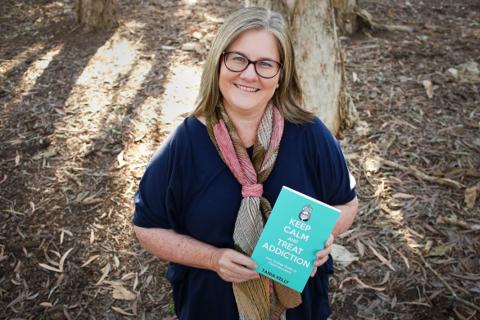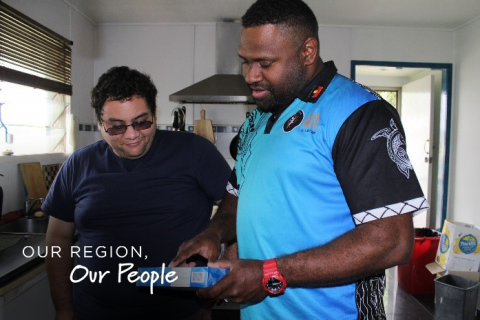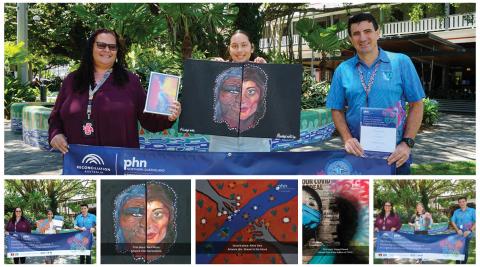The Integrated Team Care (ITC) Program is one of Northern Queensland Primary Health Network’s (NQPHN’s) funded initiatives under the Indigenous Australians’ Health Program to improve health outcomes for Aboriginal and Torres Strait Islander people.
Northern Australia Primary Health Limited (NAPHL) delivers the program throughout northern Queensland. Without the program, many Indigenous people would struggle to access the health care they need to manage their chronic or complex health conditions.
The ITC Program was established to help Aboriginal and Torres Strait Islander people with complex chronic diseases who are unable to effectively manage their conditions to access one-on-one assistance for the provision of coordinated, multidisciplinary care.
The program aims to contribute to better treatment and management of chronic conditions for Aboriginal and Torres Strait Islander people enrolled in the program and improve access to appropriate health care through care coordination and provision of supplementary services for eligible Aboriginal and Torres Strait Islander people with chronic disease.
ITC also aims to foster collaboration and support between the mainstream primary care services to deliver culturally appropriate services to Aboriginal and Torres Strait Islander people. Additionally, it aims to increase the uptake of Aboriginal and Torres Strait Islander specific Medicare Benefits Scheme (MBS) items, including health assessments for Aboriginal and Torres Strait Islander people and follow-up claims.
Cody O’Brien, a 25-year-old Townsville man, receives support from the ITC Program through NAPHL and said looking after his health would be much harder without the support of the ITC Program.
“They’ve really given me a huge hand with what I need and what they’ve done, especially in the way of health and transportation and being able to set things up like my appointments,” he said.
“It’s been really helpful because before I’d have to get the bus. I’d have to time it right to go to the bus stop.
“Without you guys (ITC Team) there I’d probably be missing appointments by 10 to 20 minutes. Sometimes I wouldn’t even be able to go to my appointment.
“I’ve also got motion sickness so it’s a pain going around travelling on buses.”
Cody has severe epilepsy which makes it unsafe for him to be alone for any longer than an hour. It affects all areas of his life, from his favourite hobby playing sports to his work in hospitality at the local stadium. So far Cody has already had two massive seizures this year.
The epilepsy also means Cody is unable to hold a license, which is why transport to appointments is so important.
Along with the transport, the ITC Program has helped connect Cody with other services to improve all aspects of his health, including dietetics, podiatry, optical, and hospital specialists.
“It’s allowed me to get different types of appointments,” Cody said.
“I was recently diagnosed with diabetes so I’ve been sent to see a dietitian and a physician to talk about cutting down on my food, especially with the effects with what I can eat.
“Then I’ve also got sleep apnoea so I’ll be on that CPAP machine for the rest of my life. With what I get from Centrelink it wouldn’t have been enough anyway to help me in this case so I’m lucky I was put in this program and they’ve been able to help me.
“They’ve really helped me get some of the items that I need. Without them I would be totally unsafe.”
NAPHL Indigenous Outreach Worker Mettassa Zaro said Cody was referred to the ITC Program by his GP when it was clear that the Indigenous man needed some extra support to manage his health.
“Cody is really independent, but his chronic conditions make it difficult for him in certain areas such as getting to his medical appointments.
“At NAPHL, we’re working alongside the community to help overcome the disparity in health outcomes for Aboriginal and Torres Strait Islander Australians.
“Our ITC Program funded by NQPHN helps Aboriginal and Torres Strait Islander people navigate the health system and access mainstream health services and support.
“Our Indigenous Outreach Workers and Care Coordinators play a vital role in ensuring clients get access to the healthcare they need.”
For more information visit www.naphl.com.au/indigenous-health



